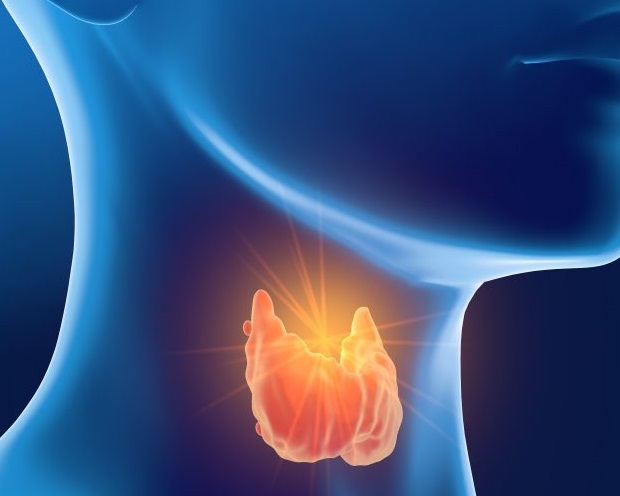
The thyroid gland, a small butterfly-shaped organ in your neck, plays a massive role in regulating your body’s metabolism and energy use. When it comes to weight management, the thyroid is a key player. Whether you’re struggling to lose weight or experiencing unexplained weight changes, your thyroid could be the culprit. In this article, we’ll explore the link between the thyroid system and weight gain, backed by scientific evidence, and provide actionable tips for managing thyroid-related weight issues.
What Does the Thyroid Do?
The thyroid gland produces two primary hormones: thyroxine (T4) and triiodothyronine (T3). These hormones regulate:
- Metabolism (how your body converts food into energy).
- Heart rate.
- Body temperature.
- Digestion.
- Muscle function.
When the thyroid is out of balance, it can lead to either hypothyroidism (underactive thyroid) or hyperthyroidism (overactive thyroid), both of which can significantly impact your weight.
Hypothyroidism and Weight Gain
Hypothyroidism occurs when the thyroid gland doesn’t produce enough hormones. This condition slows down your metabolism, making it harder for your body to burn calories efficiently. Here’s how it leads to weight gain:
- Slowed Metabolism: Low levels of T3 and T4 reduce your basal metabolic rate (BMR), meaning you burn fewer calories at rest. This can lead to weight gain even if your diet hasn’t changed.
- Fluid Retention: Hypothyroidism can cause fluid to accumulate in tissues, leading to water weight gain rather than fat gain.
- Fat Storage: A sluggish metabolism promotes fat storage, particularly around the abdomen.
- Reduced Physical Activity: Fatigue and low energy levels, common symptoms of hypothyroidism, can make it harder to stay active, further contributing to weight gain.
Scientific Evidence: A study published in the Journal of Clinical Endocrinology & Metabolism found that even mild hypothyroidism is associated with weight gain and difficulty losing weight, highlighting the importance of thyroid function in metabolic health (1).
Hyperthyroidism and Weight Loss
On the flip side, hyperthyroidism occurs when the thyroid produces too much hormone. This speeds up your metabolism, often leading to weight loss despite increased appetite. Key mechanisms include:
- Increased Metabolism: High levels of T3 and T4 accelerate calorie burning, causing weight loss even if you eat more.
- Muscle Breakdown: In severe cases, the body may break down muscle tissue for energy, contributing to weight loss.
- Reduced Fat Storage: Excess thyroid hormones promote fat breakdown and reduce fat storage.
Scientific Evidence: Research in the Thyroid Journal confirms that hyperthyroidism significantly increases energy expenditure, leading to weight loss and muscle wasting if left untreated (2).
The Role of Thyroid Hormones in Appetite and Fat Storage
Thyroid hormones don’t just affect metabolism—they also influence appetite and fat storage:
- Appetite Regulation: Thyroid hormones interact with hunger hormones like leptin and ghrelin, affecting how hungry or full you feel.
- Fat Breakdown: T3 and T4 stimulate lipolysis (fat breakdown) and inhibit adipogenesis (fat cell formation). Low thyroid hormone levels can slow fat breakdown, leading to weight gain.
- Insulin Sensitivity: Hypothyroidism can cause insulin resistance, promoting fat storage, while hyperthyroidism improves insulin sensitivity but may lead to muscle loss.
Scientific Evidence: A study in Endocrine Reviews explains how thyroid hormones modulate lipid metabolism and energy balance, directly impacting body weight (3).
Weight Gain After Treating Hyperthyroidism
If you’ve been treated for hyperthyroidism (e.g., with medication or radioactive iodine), you might notice weight gain as your metabolism returns to normal. This is because your body is no longer burning calories at an accelerated rate. Adjusting your diet and exercise routine can help manage this transition.
Managing Weight with Thyroid Disorders
If you suspect a thyroid issue, consult a healthcare provider for testing. Common tests include:
- TSH (Thyroid-Stimulating Hormone): High TSH indicates hypothyroidism; low TSH suggests hyperthyroidism.
- Free T4 and T3: Measures active thyroid hormone levels.
For Hypothyroidism:
- Medication: Levothyroxine (synthetic T4) can restore hormone levels and normalize metabolism.
- Diet: Focus on whole foods, fiber, and lean proteins. Avoid processed foods and excessive sugar.
- Exercise: Regular physical activity can boost metabolism and energy levels.
For Hyperthyroidism:
- Medication: Antithyroid drugs or radioactive iodine can stabilize hormone levels.
- Diet: Ensure adequate calorie intake to prevent muscle loss. Include nutrient-dense foods.
- Exercise: Strength training can help preserve muscle mass.
Key Takeaways
- The thyroid gland plays a critical role in regulating metabolism and body weight.
- Hypothyroidism often leads to weight gain due to a slowed metabolism, fluid retention, and fat storage.
- Hyperthyroidism typically causes weight loss due to an accelerated metabolism and muscle breakdown.
- Proper diagnosis and treatment of thyroid disorders are essential for managing weight and overall health.
If you’re experiencing unexplained weight changes, fatigue, or other symptoms of thyroid dysfunction, don’t hesitate to seek medical advice. Your thyroid health is a vital piece of the weight management puzzle.
References
- Knudsen, N., et al. (2005). “Small Differences in Thyroid Function May Be Important for Body Mass Index and the Occurrence of Obesity in the Population.” Journal of Clinical Endocrinology & Metabolism, 90(7), 4019-4024.
- Mullur, R., Liu, Y. Y., & Brent, G. A. (2014). “Thyroid Hormone Regulation of Metabolism.” Thyroid Journal, 24(2), 167-178.
- Sinha, R. A., & Singh, B. K. (2011). “Thyroid Hormone Regulation of Lipid Metabolism.” Endocrine Reviews, 32(6), 785-801.




